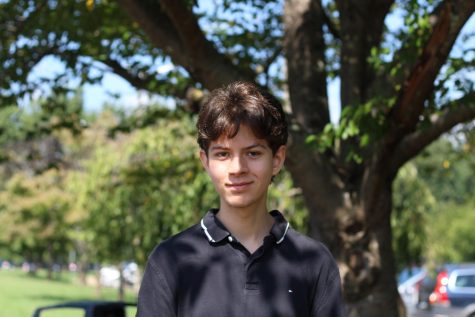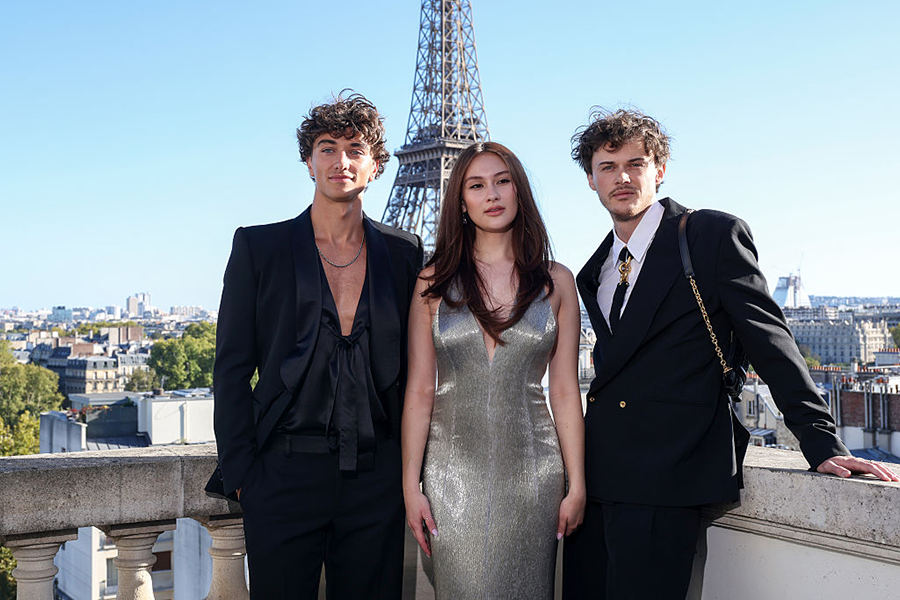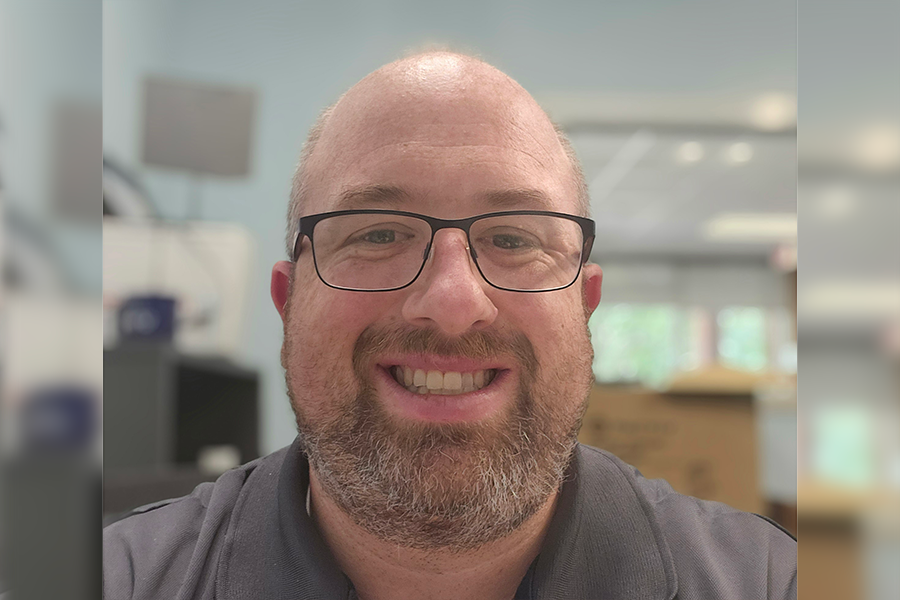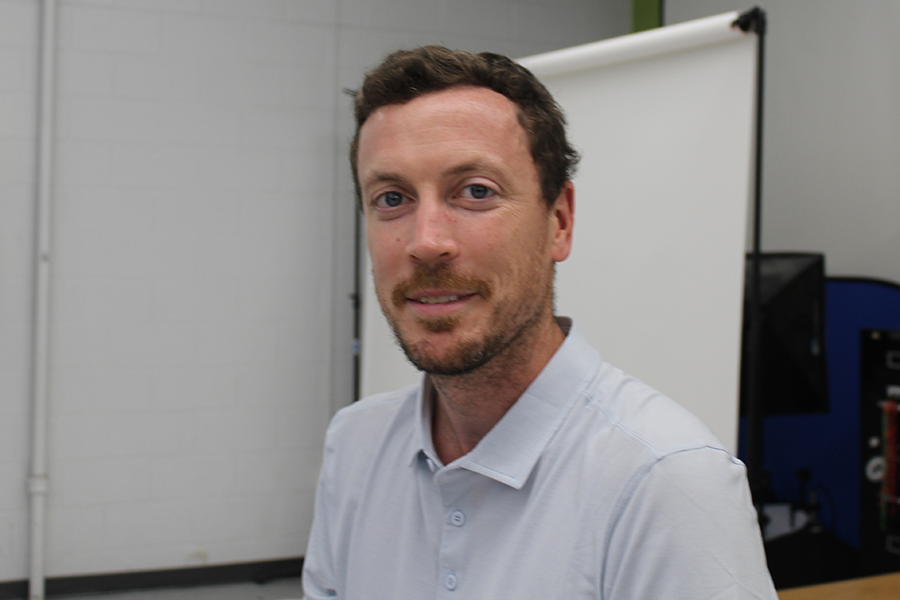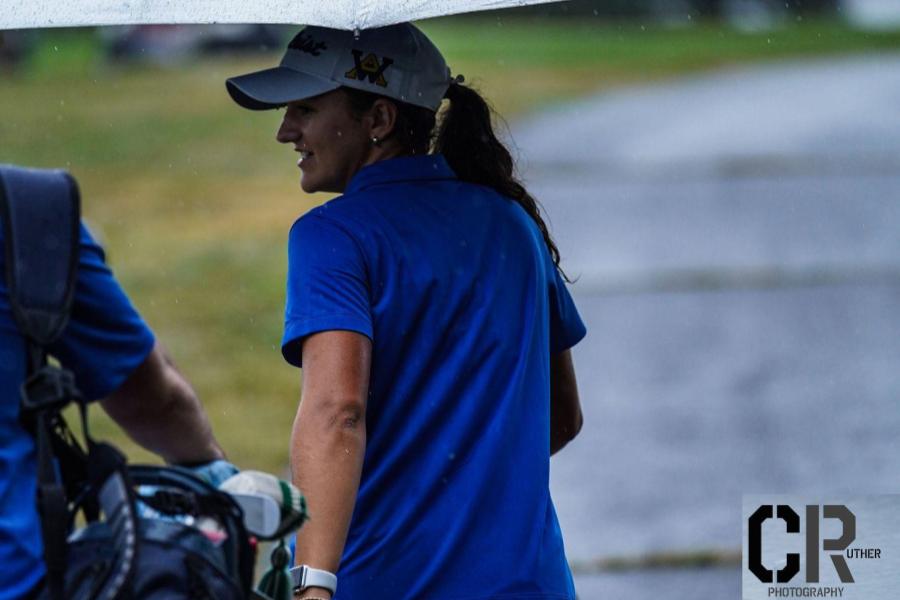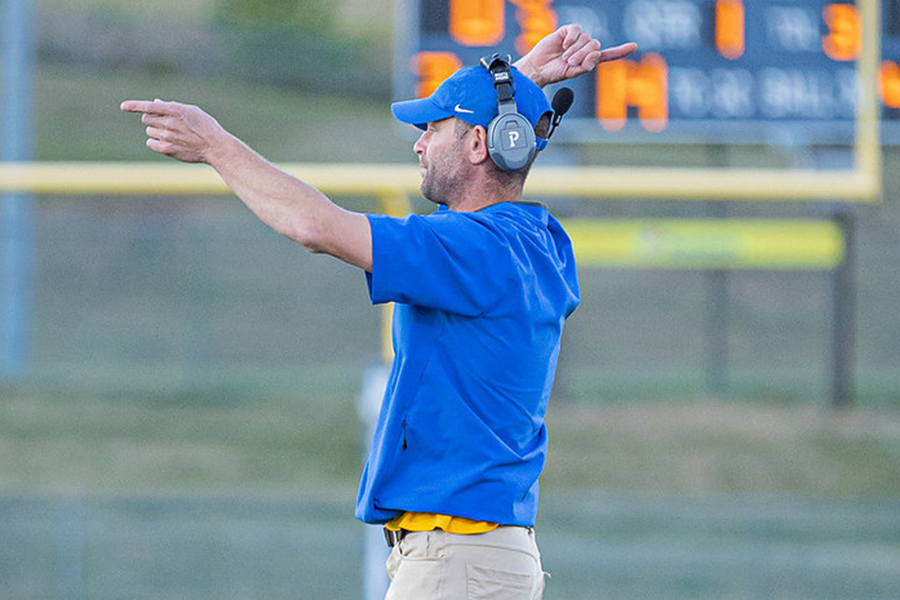Interview: Author Jocelyn Johnson Discusses New Work, “My Monticello”
Former teacher publishes groundbreaking story collection
Credit: Tatian
Author Jocelyn Johnson with reporter Max Pollock. Johnson was Pollock’s art teacher at Murray Elementary School.
May 12, 2023
While some Western students may know her as their former art teacher at Murray Elementary, Jocelyn Nicole Johnson is now widely recognized as the author of “My Monticello,” her collection of short stories which she described as “a collection of five short stories and a novella… set in Virginia and… united by themes of environmental and racial anxieties…the idea of home and belonging.” Author Colson Whitehead called it “A badass debut by any measure.” With a style not unlike Toni Morrison, her collection explores issues of race, environment, and displacement to portray an evocative and soulful image of the black experience in contemporary America. Johnson’s collection established her as an authority in these discussions, providing a distinct and intimate view on important issues in Charlottesville’s history including slavery, the rape of Sally Hemmings, and the 2017 Unite the Right Rally. In this interview we discussed that book, and the writing process in general.
Q: What was your inspiration in writing these stories?
A: I was really responding to a lot of things that were happening in and around Charlottesville – both personal things and things that were happening to the community. For example, August 12th when we hosted the Unite the Right Rally here in Charlottesville. [That] was a really… challenging moment for me.
Q: Were you influenced by any authors when writing your collection?
A: Toni Morrison, Octavia Butler, Danielle Evans, Charles Yu.
Q: You mentioned Toni Morrison and her book “Song of Solomon.” But when reading My Monticello I thought of Sweet Home from “Beloved” and Sethe’s haunted past. How did you consider historical figures in relation to your fiction?
A: I considered Thomas Jefferson both as a symbol of America – the promise and the challenges, as well as contradictions of America and he is the stand in as the imagined ancestor of my protagonist Da’Naisha Love who is a young black college student here in Charlottesville.
Q: Did you have a target audience in mind?
A: I tend to write for myself – to figure something out, and how I think about something. As opposed to writing to imaginary audiences. That works better for me. I never know who, if anyone, will read and respond to my work.
Q: The opening story of your collection, “Control Negro,” was met with much literary acclaim. Was it your intention to appeal to academic audiences? I.E. James Joyce wrote “Ulysses” for literary purposes while J.K. Rowling wrote “Harry Potter” for pleasure. Where do you lie between the two?
A: I really was just writing towards the characters and ideas that interested me, focusing a lot on language and I didn’t know who would respond.
Q: “Something Sweet on Our Tongues” concluded ominously – did you mean to warn your students of societal/peer pressure?
A: In the story there are a group of school children who influence each other towards brutality – but those same students influence each towards a weird kind of empowerment. I wanted to describe how power can work with people. Especially with people who don’t have power in other places. I think power can work for good or for ill and I just wanted to warn about that, not particularly about peer pressure.
Q: Did you have your students in mind when writing?
A: My students influence me because that was how I spent most of my day. I was writing full time for the five years I was working on these stories. Teaching art in public schools and serving students from a variety of backgrounds. And so their ways of being were a source of inspiration for the stories.
Q: Did you experience catharsis when writing these stories? Did you have a journey in writing this collection?
A: Yes. Especially the novella – because I was writing about something that happened in our community, that I didn’t know how to respond to – in other words people coming, people coming to where I spend a lot of my time, the downtown mall, and making a spectacle of the idea that someone like me might not belong there as an American and black person. I didn’t know how to respond so I got to respond in my own way in writing the novella and having my characters experience challenges and reluctantly create their own utopia with diverse characters and create the response I wanted. That was cathartic.
On Writing:
Q: Did you struggle to tell these stories – emotionally speaking?
A: I really enjoy writing but it can be really hard. Firstly for anyone who makes things it can be really hard to figure out what you’re doing. To figure out what works. To know if anyone will like it or read it. But also with these particular stories I was writing about difficult things – which only added to the difficulty.
Q: How does art impact your fiction?
A: Because I was a visual arts teacher and because I am a visual arts person I think my fiction tends to be very visual and I tend to use a lot of description and I tend to use lots of objects and the spaces in the story in a very visual way.
Q: How did you grapple with writer’s block?
A: Writing can be really hard in a lot of different ways. Generally when I am having a hard time I talk to other writers – I have a writing group in town and I listen to podcasts and it reminds me that every single writer and every creative person struggles and that helps me continue and persevere.
Q: What would you want readers to take away from your collection?
A: I think I would like readers to take away the idea that we are very much connected as small communities as a nation and as humans and as life on earth. I really think these stories are about outsider characters especially when you read through the novella there’s this theme that we are connected and interdependent and we need to depend on each other to thrive.
Q: Do you have any words of encouragement for aspiring writers?
A: Writing can be a really interesting way to explore your own ideas and to share them… I would also say I have written seriously since high school and seriously for fifteen years – if you really like writing find small ways to encourage yourself and don’t worry so much about the outcome and enjoy making up the story and having friends and other writers you know read it and share it with them. And build up your skills because that is really the funnest part and best part.




